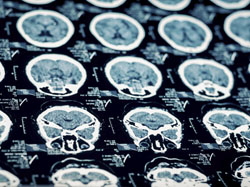Facilitating diagnosis of neurodegenerative diseases
Our understanding of the human body's most complex organ, the brain, has advanced dramatically. Today, we understand the functioning of individual neurons well, but how these billions of neurons combine and work together remains largely a mystery. The early detection and diagnosis of neurodegenerative diseases, such as Alzheimer's disease and multiple sclerosis, requires a combination of neuroimaging investigations, cognitive evaluations, behavioural assessments, lab examinations and genetic testing. With funding from the EU, the 'Content and ontology based search and retrieval of medical images' (COSERMI) project sought to help make such diagnoses possible by integrating content and context information for the search and retrieval of digital medical images. More specifically, the project worked on enabling the input of content and context information for describing and indexing medical images. This included colour, texture, shape, demographic information and clinical findings as well as anatomical and disease knowledge encoded in ontologies. Employing a user-friendly graphical interface, the COSERMI system uses this integrated information to search and retrieve from multiple databases. The prototype search system, extending well beyond the capabilities of conventional keyword indexing, is capable of searching and retrieving relevant images for dementia, Alzheimer's and Parkinson's. COSERMI has potential applications not only in diagnostics but also for educational and training purposes. Further applications include enabling neurology and radiology experts to identify previously unknown relations in brain disorders, as well as working as a learning tool for medical doctors.



